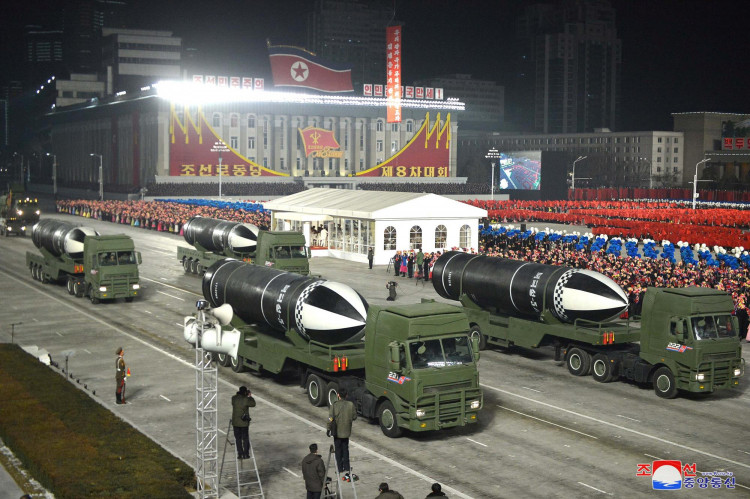North Korean missiles, powered by Western-made components, have emerged as a key weapon in Russia's intensified missile strikes on Ukraine, according to Ukrainian officials and investigations reported by CNN. These weapons, including the KN-23 missile, have been used in about one-third of Russia's ballistic missile attacks in 2024, underscoring a growing collaboration between Moscow and Pyongyang.
"Since the spring, Russia has been using ballistic missiles and attack drones much more to strike Ukraine, and less use of cruise missiles," Yuriy Ihnat, acting head of communications for Ukraine's Air Force, told CNN. This year alone, Russia has launched approximately 60 KN-23 missiles, out of 194 ballistic missile strikes recorded by Ukraine.
Missile strikes involving North Korean weapons have caused widespread devastation. According to Ukraine's prosecutor general, these attacks have killed at least 28 people and injured 213. August and September marked a notable increase in such strikes, with Ukrainian officials publicly identifying the KN-23 missile as a significant threat.
Investigations into missile fragments have revealed that the majority of the critical components used in these North Korean weapons are manufactured by Western companies. "Everything that works to guide the missile, to make it fly, is all foreign components. All the electronics are foreign. There is nothing Korean in it," said Andriy Kulchytskyi, head of the Military Research Laboratory at Kyiv's Scientific Research Institute of Forensic Expertise.
Approximately 70% of the missile components are believed to be American-made, with the remainder sourced from Germany, Switzerland, and the United Kingdom. A report from Conflict Armament Research (CAR), a U.K.-based investigative organization, found that 75% of components in an earlier KN-23 missile used against Ukraine came from U.S. manufacturers. Some of these parts were produced as recently as 2023, suggesting a rapid supply chain funneling components to North Korea.
The supply routes remain murky, but evidence strongly implicates China as a central conduit. "We have successfully traced some of those components, and the last known custodians are Chinese companies," said Damien Spleeters, deputy director of operations at CAR. Chinese firms reportedly purchase the components from manufacturers and transfer them through intermediaries to North Korea.
CAR noted that manufacturers themselves are rarely directly involved in the diversion of these components. Instead, middlemen and distribution companies play a significant role. "The diversion rarely happens at the plant that makes the components," Spleeters explained. However, Ukrainian officials and experts have criticized manufacturers for inadequate monitoring of their supply chains.
"No manufacturers' entities have been held responsible for any of these supplies yet," said Vladyslav Vlasiuk, the Ukrainian president's commissioner for sanctions policy. "If any of these manufacturers were held responsible for the quantity of microelectronics found in Russian missiles hitting Ukraine, they would really, really start to do more in that regard."
The findings raise questions about the effectiveness of sanctions meant to prevent such transfers. Despite international restrictions, North Korea appears to have established a robust pipeline for acquiring advanced technology. Some components recovered from missile fragments were identified as counterfeit, potentially fabricated in China to mimic Western designs, according to Victoria Vyshnivska, a senior researcher at Ukraine's Independent Anti-Corruption Commission (NAKO).
The impact of these missiles goes beyond the battlefield. Ukrainian officials argue that the continued flow of Western components into North Korean weapons undermines global security. "Russia uses Western components in the whole segment of both lethal weapons and reconnaissance drones," a Ukrainian defense intelligence official told CNN.
The U.S. Senate Permanent Subcommittee on Investigations has also criticized manufacturers for failing to adequately vet potential buyers and distributors. "Our findings reveal a distinct disinterest in evaluating and improving corporate compliance practices and particularly, monitoring those distributors, the middlemen," Senator Richard Blumenthal (D-CT) said in September.




